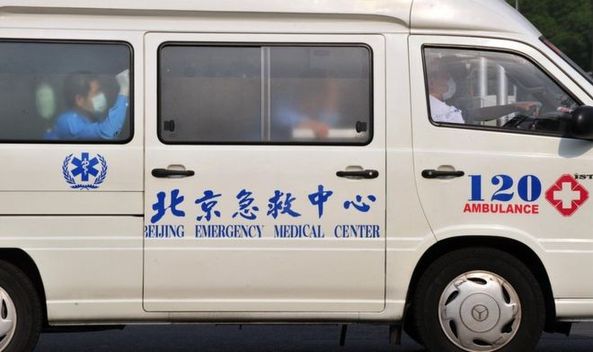
Ambulances in Beijing will be fitted with taxi-style meters in an effort to allay public concerns about overcharging.
为免公众诟病救护车收费过高,北京救护车将采用类似出租车的打表计价系统。
From May, the emergency vehicles will charge a fixed rate of 50 yuan for patients being transported up to 3km, and then seven yuan for each kilometre travelled after that, the Beijing Morning Post reports. If an ambulance is called but then not needed, a 50-yuan charge will still apply, the paper notes.
据《北京晨报》报道,5月份开始,急救车运送病人3公里内固定收费50元救护车英文,3公里以上每增加一公里收费7元。该报道称,急救车出车但未使用的,仍需缴纳50元出车费。
Until now, ambulance drivers worked out the charges themselves, often leading to complaints from members of the public who felt that their bills were too high, The Beijing News says.
据《新京报》报道,到目前为止,救护车费用都是由司机自行收取,导致有公众投诉收费过高。
In February, Chinese media reported that a man in Shandong was slapped with a 3,600-yuan charge after his ill father was transported 80km to hospital. That's about half the monthly wage of an average Beijing worker.
据中国媒体报道,今年2月份,山东一男子给生病的父亲叫救护车,结果行驶了80公里,花了多达3600元车费——相当于北京每月人均工资的一半。
On social media, the fact that ambulances charge for their services at all is news to most users. "I always thought that ambulances were free," writes one person on the Sina Weibo microblogging site. Plenty of people think it's unethical to charge for emergency services, and one user wonders: "Will you need an entrance ticket to go into hospital in future?"
在社交媒体上,很多网友竟然是第一次听说救护车出车要收钱。新浪微博一位网友表示:“我一直以为救护车是免费的呢。”很多人认为急救服务收费不道德,一位网友就发出这样的疑问:“以后是不是去医院得买门票了?”
A few users think that ambulance meters are a good idea, with one saying it'll help them "be more efficient". But some sarcastically suggest that - as with some unscrupulous taxi drivers - the meters might provide an incentive to take the long way round. "In future, don't rule out ambulances taking a detour when using the meter," one man says.
也有网友认为急救车打表这个主意不错救护车英文,一位用户称这样有利于使急救车“更有效率”。还有一些冷嘲热讽的网友,他们觉得计价器为无良司机绕道敛财提供了好机会。一位男网友表示:“将来救护车也要加入计价器绕行大军了。”
Vocabulary
allay:减轻;使缓和;使平静
unethical:不道德的
unscrupulous:寡廉鲜耻的;不讲道德的


